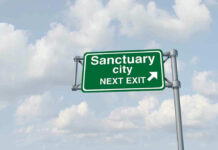
As President Trump restores constitutional order at home, chaos across the border reaches new extremes—Mexico marks the ninth mayor assassinated in a single year, exposing the utter failure of leftist security policies and the danger of unchecked cartel power.
Story Snapshot
- Ninth sitting Mexican mayor assassinated during President Sheinbaum’s first year, despite heavy federal protection.
- Attack occurred at a public festival, highlighting the boldness of criminal groups and the vulnerability of officials.
- Escalating cartel violence in Michoacán raises serious doubts about the effectiveness of Mexico’s security strategies.
- Continued instability south of the border underscores why strong U.S. borders and leadership remain crucial for American security.
Assassination at the Heart of Mexico’s Political Crisis
On November 1, 2025, Uruapan Mayor Carlos Alberto Manzo Rodríguez was gunned down in front of his family and a crowd of residents during a Day of the Dead festival in Michoacán. Despite being under federal protection and escorted by the National Guard, Manzo was shot seven times, and the attack ended only after security forces killed the assailant and arrested two accomplices. This brazen murder marks the ninth sitting mayor assassinated during President Claudia Sheinbaum’s first year, sending shockwaves across Mexico and raising alarm among U.S. observers who have long warned about the consequences of weak border enforcement and failed progressive security policies.
Manzo’s killing is not an isolated incident but part of a disturbing trend of political violence targeting local officials, especially those willing to challenge cartel control. Michoacán, a state historically plagued by organized crime, has seen at least seven mayors killed since 2022. The attackers’ willingness to strike during a major public holiday, in full view of civilians and media, reflects a climate of lawlessness emboldened by ineffective state action. The weapon used in the murder was linked to prior cartel activity, demonstrating the deep entrenchment of organized crime networks. These facts underscore the urgent need for tough, uncompromising security measures—something the previous U.S. administration pressured for, while the left relied on empty rhetoric.
Collapse of Security and Public Trust under Sheinbaum
President Sheinbaum’s administration has faced mounting criticism for failing to protect officials and restore public order. Despite increased National Guard deployments and new security plans following Manzo’s death, the violence has not abated. Federal authorities claim to be investigating, but residents and local leaders remain skeptical, as years of promises have yielded little real progress. The immediate appointment of an interim mayor, followed by plans to install Manzo’s widow as successor, only highlights the precariousness of local governance. With criminal groups acting with near impunity, public confidence in government protection is at an all-time low, and communities are left traumatized and fearful.
These failures have ripple effects far beyond Mexico’s borders. As instability grows, the risks of cartel-driven violence, mass migration, and cross-border crime intensify. The Biden administration’s leniency on border policy and lack of meaningful support for Mexico’s security crisis are now blatantly revealed as naive. The American public, especially those living in border states, understand that chaos abroad threatens safety at home, fueling demands for robust enforcement and a return to policies that prioritize constitutional rights and national sovereignty.
Cartel Power and the Erosion of Rule of Law
The assassination of Manzo, a vocal critic of organized crime, demonstrates the immense power cartels wield over political processes in Mexico. Criminal organizations routinely target mayors and local officials to maintain territorial control and intimidate reform-minded leaders. Despite federal protection, Manzo’s fate shows that even well-guarded officials are not safe under current Mexican policies. Analysts note that the public, symbolic nature of these assassinations is designed to send a message: no one is safe, and any challenge to cartel authority will be met with lethal force. This persistent threat chills political participation and undermines both democracy and the rule of law.
Experts argue that increased militarization may risk provoking further violence, yet the alternative—retreat and appeasement—has only emboldened criminals. Calls for comprehensive reform and better coordination between federal, state, and municipal authorities have grown louder, but skepticism remains high. Many see Sheinbaum’s latest security plan as another unproven solution, reminiscent of previous administrations’ failed attempts to curb cartel violence. The situation stands as a stark warning to U.S. leaders: weak responses to organized crime and border insecurity invite disaster.
Impact on the U.S. and the Case for Strong Borders
The ongoing violence destabilizes Mexican communities, disrupts local governance, and threatens economic investment. For the United States, the consequences are clear—rising instability across the border drives illegal immigration, human trafficking, and drug smuggling. As President Trump’s administration reinstates strong constitutional protections and border enforcement at home, the contrast with the lawlessness of Mexico’s leftist government could not be more striking. American security depends on leaders who recognize the dangers of open borders and the necessity of defending constitutional values against both foreign and domestic threats.
The crisis in Uruapan is a grim reminder of what happens when governments surrender to criminal organizations and ignore the hard realities of security. Conservatives remain steadfast in demanding accountability, tough border policies, and unwavering support for law enforcement—because the safety and sovereignty of the nation are not negotiable.
Sources:
Mexico mayor who spoke out against cartels killed at Day of the Dead festival in front of family












